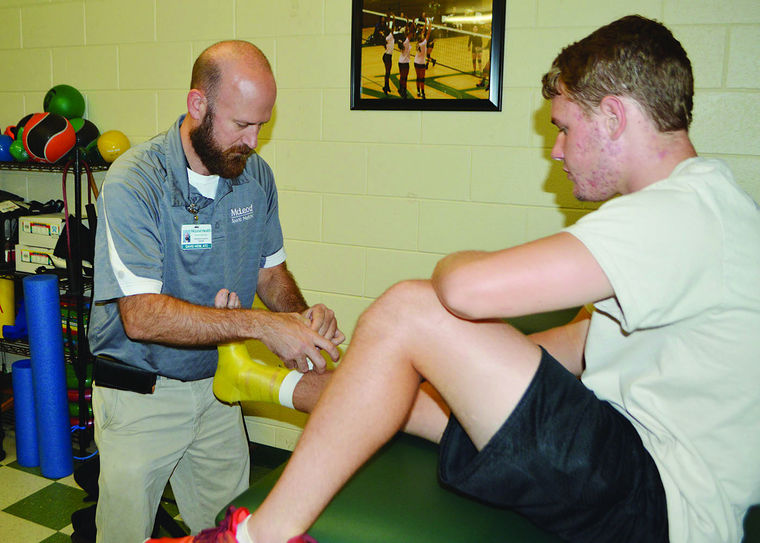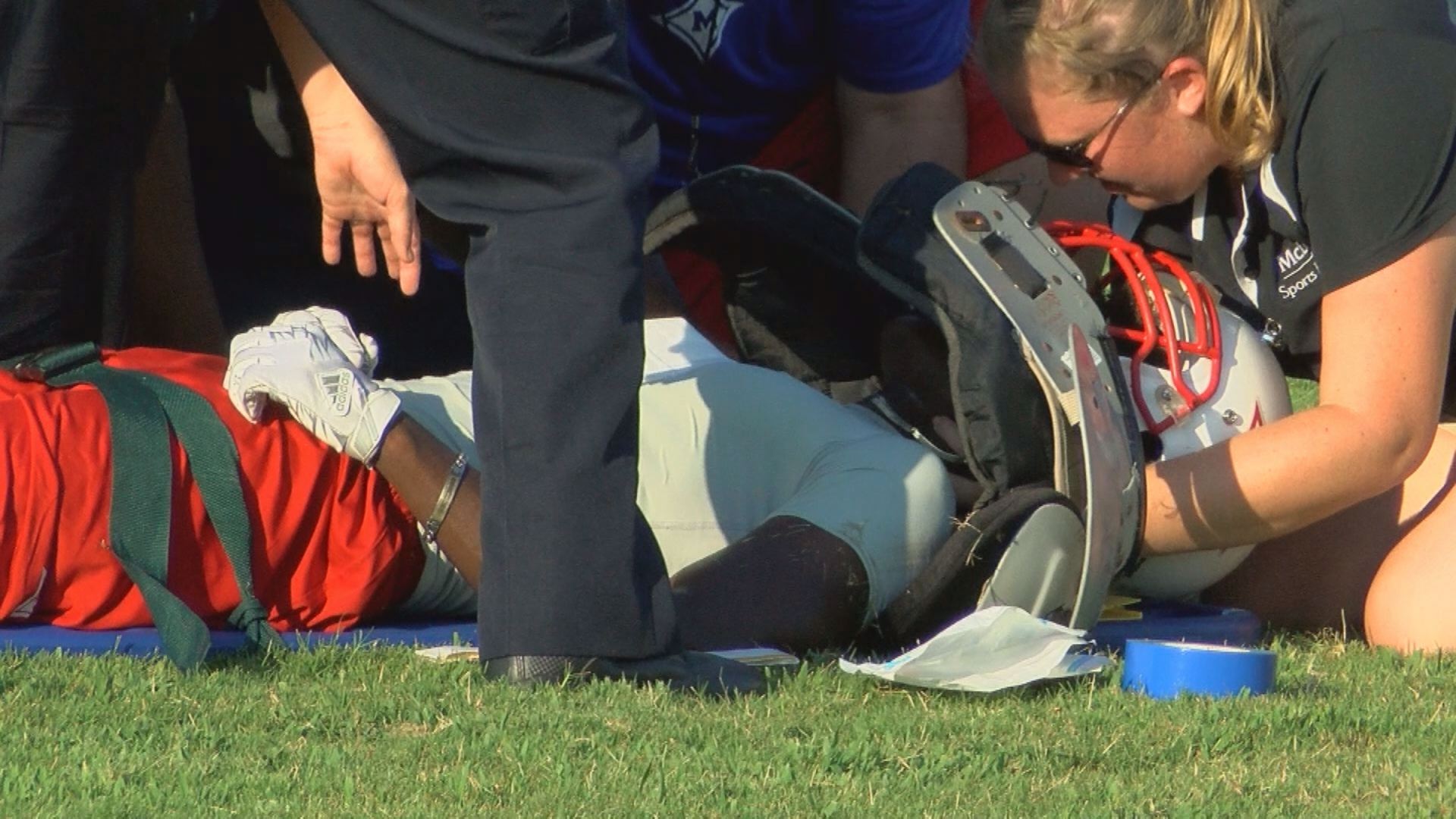
Certified athletic trainers take high school athletes’ health seriously, as the athletes go out and play the sports they love.
For instance on the football field, when someone is injured, it is likely an ATC that runs out onto the field to check on the injured.
ATCs are often the athletes’ first line of defense if and when they get injured on the field, court or baseball diamond. ATCs assess, support, and advocate.
David Heim, a McLeod Health contracted ATC working out of West Florence High School, said the job isn’t always easy, mostly because of the personalities he has to deal with.
“We work with the schools, but our first priority is the athletes we serve,” Heim said. “We have to deal with the coaches, the students and the parents to make this work. Our coaches want an assessment as quickly as possible as to the extent of the injury. Our athletes want to know how soon he or she can get back to what they were doing, and the parent just wants to know if their child is ok.”
Athletes can have the immediate effect of an injury, such as an acute injury when a child is in serious pain and crying, or, in the case of a head injury, a lingering effect. Or an athlete can experience “a stinger,” where the pain can be immediate, but fade with a little bit of time.
“We do immediate assessments on the field to see if the air was knocked out of an athlete or if their injury is more severe,” Heim said. “After the athlete is brought off the field, we can get a little further in our decisions based on the type of injury it is. If it is too severe, we bring the parents in to help make decisions. We aren’t allowed to call the ambulance in unless we have the parent’s ok.”
This is one of the main differences between the high school sports level, compared to the collegiate and professional levels. The collegiate and professional level ATCs can make their own decisions when it comes to health care, whereas the high school students and ATCs cannot.
To become certified, an ATC, at the very least, earns a bachelors degree from a four-year program, meets the criteria necessary to go on to get a master’s level degree, and is certified by passing a three-part exam given by the South Carolina Board of Certification.
Mike Rice, an ATC at Marion High School, says that there are some serious challenges to being an ATC in Marion County.
“We have a few challenges here in Marion County,” Rice Said. “It is mostly an issue with the amount of students that are playing in these sports. Between junior varsity and the varsity football teams, there are about 50 students; splitting them up, there are about 25 per team. Even with each player playing one way, there aren’t many replacements to put in if someone is injured so I have to be really careful with my assessments of an athlete’s injury. It is a very fine balancing act as to what is the best scenario for the student and the team.”
Rice was placed in his position as the trainer about a year ago and had to build relationships with the coaches, students and the parents.
“I had to build relationships with the students and coaches in order for them to trust me,” Rice said. “Once that was established, we could work to do more.”
Every year, Rice does an assessment of all the injuries that occurs in a calendar year prior to the next season begins. He then works with the coaches to steer athletes from those types of injuries. This way, they could avoid as many of those injuries as possible.
“During a specific season, I see certain injuries that occur and we have to be very creative in treating those injuries,” Rice said. “I have to work with the coaches to do the athlete’s rehabilitation. Receivers make specific movements and I can have the coaches help me to have them work their injuries after their doctor clears them for activities.”
“I think the best thing about my job is that every day is different,” Heim said. “Every injury and every student is different so there are specific challenges to treating them. I feel the best part of my job is when a athlete I assessed follows my recommendations, does his rehabilitation and comes back from injury as good or better than they were when they got injured. That is what makes my day.”
ORIGINAL ARTICLE:
http://www.scnow.com/observer/article_05050422-679f-11e5-affb-0788a7f33cbf.html

